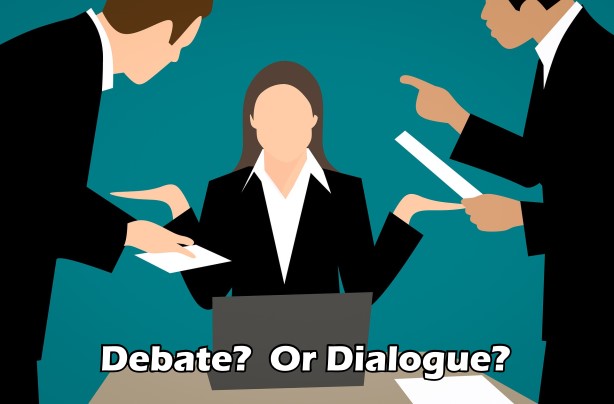How is your anxiety these days?
(WARNING: this article is a bit longer than usual, and will require reflection. Scan to the summary at the end if needed–not recommended though. My suggestion, find a time when you can read the article in full and consider how it can apply to you. Then let me know what you think.)
Not sure about you, but my anxiety level goes up and down in life a lot, and even more so these days with Covid-19.
The latest for me has been my daughter’s wedding. It is coming up soon–in Oklahoma. It’s been in the works for months but has created a lot of uncertainty for weeks now with the pandemic. Should we have postponed it or changed the date? How many people should we have invited? We had 250, then 60, then 10, then 30, and now – who knows? What really matters is that they get married, right? Yes? No? You get the point. All kinds of questions and uncertainties in my head.
Or how about another source of anxiety – finances. They are a source of anxiety all the time for most, but especially during CV19. What happened to your retirement funds (if you had any in the first place)? Will they ever recover? Will you have a job yet throughout this year to provide for your family? Will the economy come back as some say it will or will it get worse? Will there be a second wave? Will it ever be the same as it was?
I could add more questions. You could too. Before I wrote the next sentence I counted up how many other sources of anxiety there are currently in my life – at least 8. You may have more.
There is much that is uncertain these days.
How do we find calm in the midst of anxiety?
We have to change our needs to desires and seek a greater good.
Let me explain.
Think of anxiety as being the emotional reaction we experience when we need something to happen, but are uncertain if it will.
(I define “need” as something that the one in need requires in order to experience a sense of ok-ness, security, calm, etc.)
That something we “need” to happen could be as simple as a business meeting producing positive results, or a difficult conversation leading to a hope-for outcome. If these turn out how we want, we are happy and excited, if they don’t we are frustrated or disappointed. BUT until we know the outcome, we are anxious – because of the uncertainty of what will happen. Other examples could include:
- A person who needs their marriage to survive, but they aren’t sure it will, experiences anxiety.
- Someone hopes (needs) their employer will keep them on during this crisis, but they have no guarantee of it happening. The uncertainty creates anxiety.
- Parents “need” their teenager to connect more with the family but don’t know how to reach their child. What they have tried hasn’t seemed to work. Time is running short before the teen leaves the nest. The parents experience anxiety.
Remember, anxiety is the result of needing something to happen, but being uncertain if it will. The more dependent one is on what they need, and the less certain of it happening, the greater the anxiety.
To decrease anxiety then, one option is to create greater certainty that what we need to happen WILL happen. This is what most of us seek to do as we face life’s challenges.
In our anxiety over finances, for instance, there are a number of things we seek to do to create greater certainty we will have enough income to provide for our family, now and in the future. We:
- Work harder
- Strive to get out of debt
- Use a budget (Like Dave Ramsey’s – and I don’t get commission for mentioning him!)
- Spend wisely
- Develop a savings account
- Build one’s assets
- Invest
Some or all of these steps are do-able to some degree or another for each of us. And that can create a greater sense of certainty that we will be able to provide both now and in the future for our family.
Until COVID-19 hits or some other disaster we had not been expecting!
Then we are faced with the reality that as hard as we try, we can’t be certain that we can make happen what we think needs to happen. We don’t have that level of ultimate control–not only in our finances but in any area of life. We like to think we do, but deep down we know we don’t.
THAT is why we are anxious.
So if in fact, we cannot be certain about getting which we need, because we don’t have as much control as we like, what can we do?
We must take option two: change our needs to desires, and seek a greater good.
Consider the following scenarios to understand what I mean:
Last year, we lost a good friend to cancer. She was an amazing person in so many ways, even up to the very point of death. I can’t remember her ever really complaining though she battled for two years and went through so much. Days before she died, Zerrin and I visited her, and she was still not complaining. She even asked how we were! She wasn’t mad at life or God and was largely at peace. She left behind a husband and two young teenagers. How did she do it?
She changed her “need” for health, to a “desire” for health. It was a strong desire for sure, but still a desire. It ceased being a need. And she sought a greater good.
Strangely, during the last two months, I have lived with less anxiety than ever over the future of our finances. And it’s not because we came into an inheritance or anything! Rather, we have changed our “need” to a “desire” for financial security. And we seek a greater good.
In order to reduce their anxiety, the parents who “need” their kids to connect more with the family, will have to change their “need” to a “desire” and seek a greater good.
And finally, I think of Jesus, who faced a terrible death and cried out to his Father for intervention, but nevertheless, downgraded his “need” to a “desire” and sought a greater good.
What is that “greater good” to seek?
At first glance, one might say the “greater good” to seek is to leave a legacy, or put things in perspective, or to love without demanding. These are all worthy pursuits for each of us.
For those of us who follow Jesus, we can seek an additional “greater good.” We can seek to live a life where we don’t deny our desires, but not confuse them with needs. We know our greatest good is to entrust our lives to our Creator and follow Him wherever He leads, knowing for certain that whatever He does here on earth and afterward is best.
If our finances suffer, we can seek God and His leading in our lives.
If our teens choose to not connect with the family and go their own way, we can still trust God and seek His direction on how to still best love our kids.
When we are diagnosed with that terminal illness–we can seek His comfort and help knowing He is with us and that soon we will be with Him.
Towards the end of his prayer, when Jesus asked a third time for another plan to be drawn up, He expressed His prayer as a desire – not a need. And instead, He sought to do the greater good–that of carrying out what His Father requested and focusing on the joy it would bring in the end.
In summary, anxiety is the emotional reaction we experience when we need something to happen but are uncertain if it will.
It is a common experience known to every person on earth. How we deal with it, however, is not so common. We all engage in various stress relievers, but to process anxiety most fully and find calm, we must learn to change our needs to desires and seek a greater good.
Did you find this helpful? If so, would you share it with a friend or family member who might also be helped?
Questions? Comments? I’d love to hear from you!
Thank you!
Mark Oelze
Author, Creator of PLEDGEtalk, a How To When Communication Matters
For more useful tips go here…https://pledgetalk.com/tips/
Don’t forget to visit our Facebook page! https://www.facebook.com/PLEDGEtalk/

